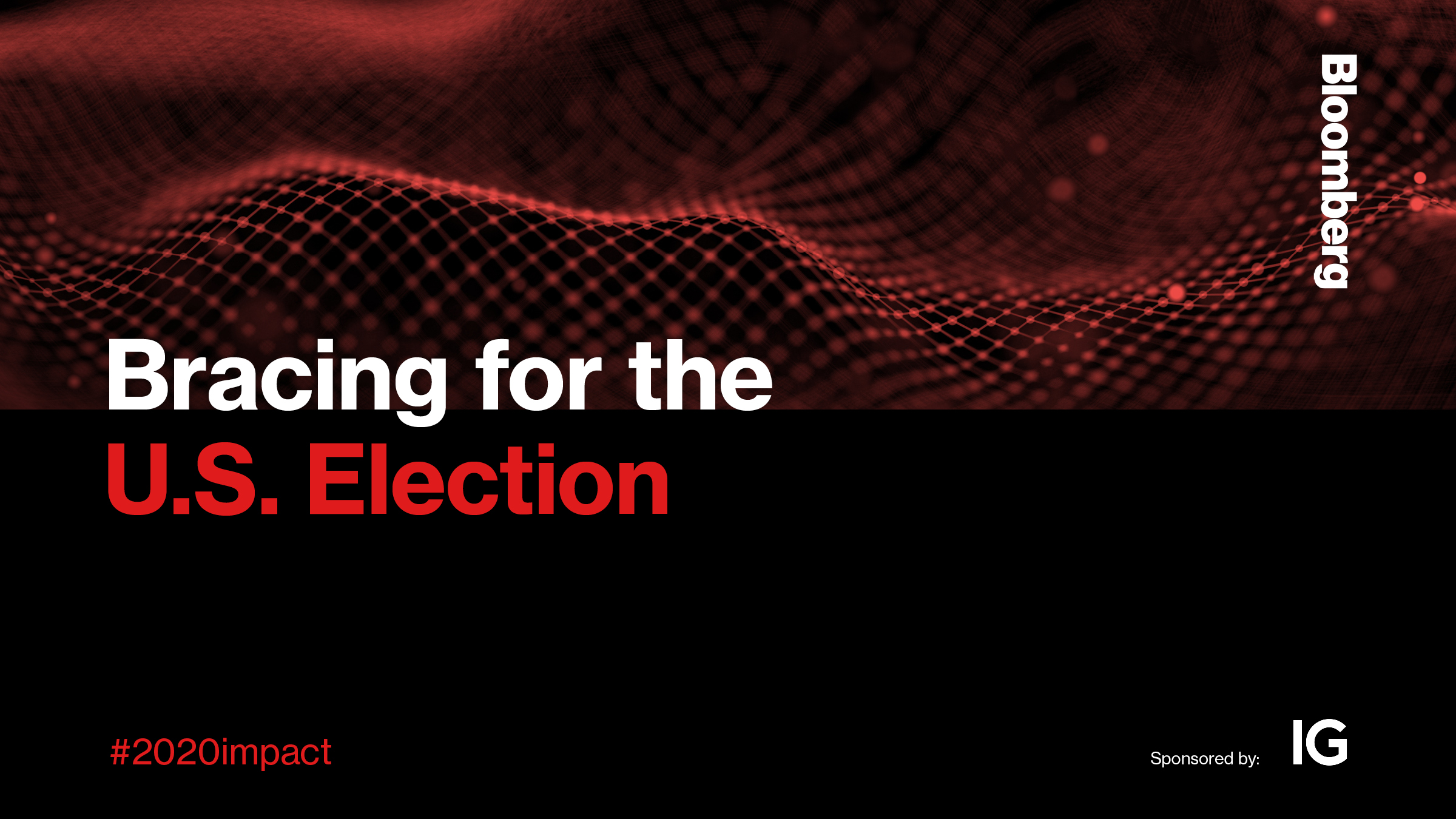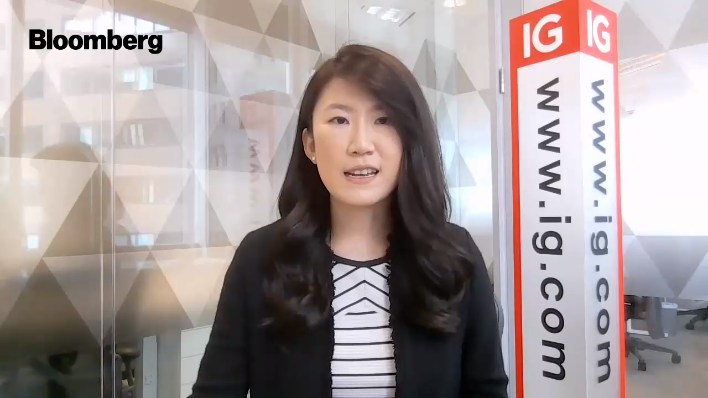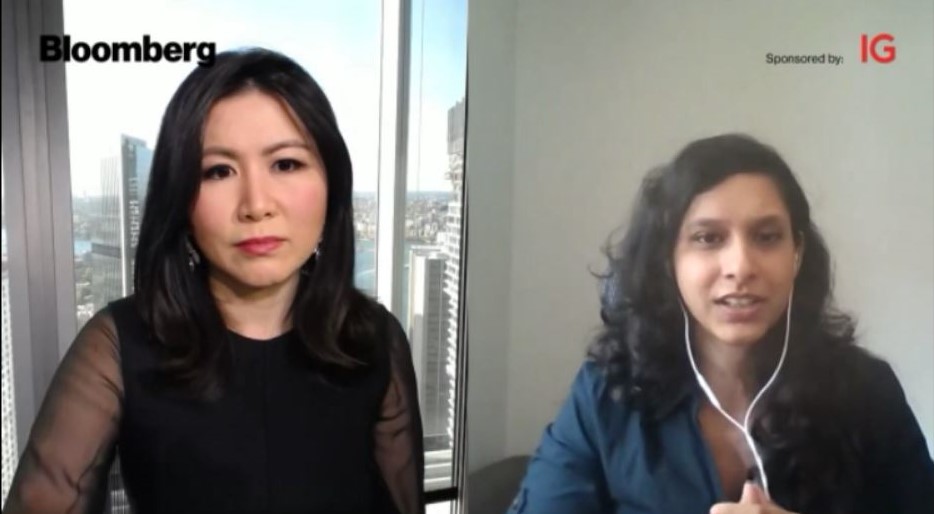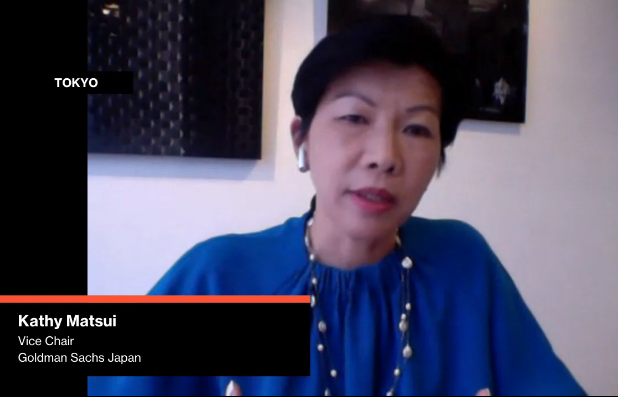
By Mallika Kapur, Bloomberg Live
This November’s U.S. presidential election is set to be a roller coaster ride for candidates, voters and investors. There’s a good chance a winner will not be declared on election night. There is now a range of once-unthinkable scenarios for market participants to consider. President Trump has declared, repeatedly, that he won’t accept an outcome that he deems tainted.
With tens of millions of Americans voting by mail — more than in any other U.S. election in history — the outcome may not be clear for days or longer, raising concerns about political instability and, possibly, civil unrest. With the attention of many investors turning toward November’s elections as a source of risk, we gathered leading money managers to guide us through all the U.S. election scenarios and debate the hedging strategies that should protect portfolios.
Speakers included:
- Brian Barish, President and Chief Investment Officer, Cambiar Investors LLC
- Kathy Matsui, Vice Chair, Goldman Sachs Japan
- Jingyi Pan, Senior Market Strategist, IG Asia
Bloomberg moderators included:
- Haidi Stroud-Watts, Anchor, ‘Daybreak Australia’ and ‘Daybreak Asia’, Bloomberg Television
- Ishika Mookerjee, Asia Stocks Reporter, Bloomberg
Click here to view video of the full discussion.
Event Highlights:

- We kicked off the program with a message from Jingyi Pan, Senior Market Strategist, IG Asia. She said while Covid-19 remains the overarching issue the world is dealing with, the U.S. election has grabbed IG’s attention for now. She described a Biden win as potentially U.S. market negative as it could lead to higher corporate taxes. On the other hand, a Trump win could be moderately positive for the U.S. markets, given the stability of having the same president continuing his policies and offering other forms of fiscal support down the road. However, the perspective changes when viewed through a different lens. “The legacy with starting trade wars with key trading partners does not intuitively put the Asia region in a good light with another four years to go,” she said.

- But, of course, given the surprise victory of Donald Trump four years ago, it is difficult to predict who will occupy the White House after the election. Joe Biden is currently leading in the polls. Bloomberg’s Haidi Stroud-Watts asked Brian Barish, President and Chief Investment Officer, Cambiar Investors if he thinks there could be a potential upset this year. “I do think that there is a stealth Trump vote, these are people who say they won’t vote for Trump because it’s unfashionable. But they like him. It’s still possible but it would be outside any kind of normal polling error kind of range,” he said.Barish talked about the typical behaviour of markets in an election year. He said that markets are usually soft between June and October because of worry and anticipation and, right around now, with two weeks to go till polling day, they tend to firm up before rallying at election time. “That’s exactly textbook what happened in 2016, but there is nothing textbook about 2020. Nothing about 2020 is normal. We had a big crash back in March due to Covid and the markets have been recovering more rapidly than most people thought they were capable of in the ensuing seven months,” he said. Why do they rally after an election? Because the uncertainty about who will or will not win is concluded, Barish said. We know markets don’t like uncertainty. “But, in this instance, you may have more uncertainty than less. What does Biden with a Democatic Senate do, what does Biden with a Republican Senate do? What on earth can happen with a second Trump term? I feel a lot of uncertainty could get uncorked with this election. It’s really hard to say.”

- Bloomberg Asia Stocks Reporter, Ishika Mookerjee, said everyone is factoring in a Biden win. But, the big question is what happens if it’s going to be a contested election, she asked, referring to the hidden group of Trump voters that Barish mentioned. She cited a recent study which found that most fund managers are worried about volatility after the poll than they are before it, because no one is ruling out a contested election.

- Our next guest, Kathy Matsui, Vice Chair, Goldman Sachs Japan spoke about the impact of the US election on Asian markets. She said, while Asian markets are buoyed by positive sentiment in the region, they can’t ignore what’s happening in the U.S. “At the end of the day, most Asian economies and markets are not solely driven by domestic drivers. There are a lot of economies that are still very open and that means a significant dependence on U.S. and European markets for end demand for their products and services. Investors need to look at both. There are significant positives supporting outperformance, not of all Asian markets but markets in North Asia.”Matsui went on to say that if the Democratic Party wins the White House and controls both chambers of Congress, it would bode well for Asia. “We believe there is a decent chance North Asian markets, i.e., China, Japan, Korea, Taiwan, could outperform for the foreseeable future. Why? Because all these markets have a high exposure to the U.S.” It would be dangerous to ignore what’s happening in the U.S. — a Biden win could give these markets — which are heavily weighted toward the U.S., a strong tailwind.
This virtual briefing was Proudly Sponsored By

——————————
Join the Conversation:#2020impact
Instagram: @BloombergLive
LinkedIn: Bloomberg Live
Twitter: @BloombergLive
Interested in more Bloomberg Live virtual events? Sign up here to get alerts.
——————————